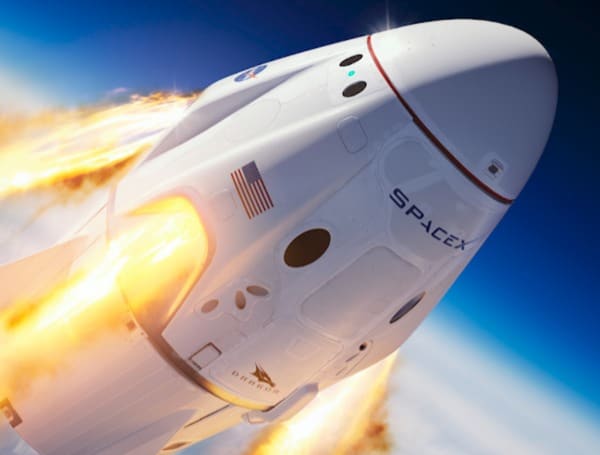Space exploration is a rapidly evolving field renowned for its significant financial demands and cutting-edge technological advancements. The quest to understand life beyond our planet has always been a subject of research and investigation. Numerous developments, equipment, and discoveries from space have proven highly beneficial for enhancing the quality of life on Earth. The history of such research dates back to ancient times when philosophers examined the night sky to uncover the arrangement of stars. Since then, the field has made substantial progress, with humans now maintaining a space station in Earth’s orbit. Organizations such as the Aerospace Industries Association and the American Astronautical Society are committed to the exploration of space. This space essay aims to discuss the nuances of space exploration, considering its benefits and drawbacks for humanity, ethical questions, and future predictions for the industry. For students needing assistance in writing essays on complex topics like space exploration, “EssayService can help with essays” by providing expert guidance and support throughout the writing process.
Space Exploration
It is a misconception that space exploration has no impact on the lives of ordinary people. In reality, it significantly enhances the quality of life for millions daily. Technologies developed for space studies are now applied in the medical field and other experimental domains (Rai et al., 2016). However, space research also raises numerous ethical questions regarding colonization, financial resources, and environmental issues. As this science advances, more unanswered questions emerge. To many unfamiliar with the topic, space exploration may seem like a governmental budget drain and merely a pastime for experts.
During the time of Gagarin and the initial space voyages, being a cosmonaut was regarded as extremely prestigious, honorable, and filled with a sense of romance. Today, science has advanced far beyond basic understanding, leading some to regret that their taxes fund the exploration of places they may never visit. Researchers’ attitudes toward this field are mixed. The next sections will cover the main benefits and drawbacks of space exploration to provide a clear and argumentative statement.
Advantages of Space Exploration
Despite being less noticeable to the average person, space exploration offers numerous societal advantages. For instance, it encourages studies in various scientific disciplines (Panesor, 2009). Moreover, young specialists in chemistry, biology, and engineering become interested in the space sector (Panesor, 2009). This mutual benefit allows students to present innovative ideas while research centers support the new generation of scientists with jobs and good pay. The benefits of space exploration extend beyond financial gains, profoundly impacting society. According to Jackson et al. (2019), women have a vital impact on space research, with female astronauts playing a significant role in reducing social disparities during the final decades of the 20th century. Diverse perspectives from women and men enhance the efficiency of the space exploration industry.
Drawbacks of Space Exploration
Critics often view space exploration as a costly endeavor. This sector ranks among the most costly, necessitating vast intellectual contributions and expensive equipment (“Cost of Space Exploration,” 1961). Nonetheless, Baum (2009) suggests a cost-benefit analysis, emphasizing the need to consider ethical risks and alternative budget allocations. In another study, Baum (2016) discusses the problem of colonization, arguing that if humans cannot preserve nature on Earth, seeking other habitats is futile. Additionally, the ecological impact worsens due to humanity’s desire to leave Earth.
It’s crucial to note that the costs of space exploration vary depending on the research type and objectives (“International Space Exploration Coordination Group,” 2013). Utilizing data from previous experiments can reduce survey costs (Battat, 2012), though this requires significant time and effort, making the task challenging. Another drawback is that it often takes years or even decades for new technologies to become accessible to the general public. The disadvantages of space exploration are evident to society as the immediate benefits are not always visible.
Future Trends and Potential Impacts of Increased Space Exploration
The space studies industry is pivotal in political, social, and economic arenas. Increased funding might lead to financial strain on a country. However, space exploration is expected to yield many non-material benefits and unforeseen advantages shortly. For instance, recent developments could be integrated into various scientific fields. Robotics, such as mechanical hands or neurotransmitters, are already saving and improving thousands of lives thanks to space technologies. The intellectual demands in this field could foster cultural and cognitive growth among those interested in space studies (Crawford, 2019). If no new habitable planets are found, society might develop a greater appreciation for Earth’s environment and work towards its preservation.
How to Minimize the Harm of Space Exploration
First, analyzing previous experiences and results can reduce the costs of new inventions. Secondly, it is essential for public relations experts to communicate the significance and advantages of space exploration to society. Lastly, the topic of space studies should be elevated to a global concern among developed nations (Krichevsky, 2018). This approach would lower costs for individual countries and enhance overall efficiency.
Conclusion
In today’s world, space exploration presents both benefits and drawbacks. The advantages primarily impact the social sphere, while the disadvantages focus on the high costs of research. However, several strategies can improve the financial situation, such as leveraging past experiences or optimizing processes. Ethical considerations are also essential, prompting reflection on ecological and moral issues. Space study remains one of the most captivating scientific fields in the 21st century.
This space essay serves as an example of an essay about space, highlighting the intriguing and multifaceted aspects of space exploration. When it comes to writing an essay about space, the topic offers a wealth of material, from technological advancements to ethical considerations. Utilizing an essay writing service that can write my essay can provide invaluable assistance in crafting a comprehensive and engaging essay on this subject. Space essay topics are diverse, covering everything from the history of space exploration to its future potential and impact on society.
